The HyperTexts
Arabic Poetry Translations by Michael R. Burch
These are modern English translations of Arabic poems by the Palestinian poets
Mahmoud Darwish, Walid Khazindar,
Nakba,
Kamal Nasser,
Fadwa
Tuqan and
Tawfik Zayyad.
FADWA TUQAN
Fadwa
Tuqan (1917-2003), the Grande Dame of Palestinian letters, is also known as
"the Poet of Palestine." She is generally considered to be one of the very best
contemporary Arab poets. The sister of the poet Ibrahim Tuqan, she was born in
Nablus in 1917. She began writing in traditional forms, but became one of the
leaders of the use of the free verse in Arabic poetry. Her work often deals with
feminine explorations of love and social protest, particularly of Israel's
occupation of Palestinian territories.
Enough for Me
by
Fadwa
Tuqan, a Palestinian poet
loose translation/interpretation by
Michael R. Burch
Enough for me to lie in the earth,
to be buried in her,
to sink meltingly into her fecund soil, to vanish …
only to spring forth like a flower
brightening the play of my countrymen's children.
Enough for me to remain
in my native soil's embrace,
to be as close as a handful of dirt,
a sprig of grass,
a wildflower.
Existence
by Fadwa Tuqan
loose translation/interpretation by
Michael R. Burch
In my solitary life, I was a lost question;
in the encompassing darkness,
my answer lay concealed.
You were a bright new star
revealed by fate,
radiating light from the fathomless darkness.
The other stars rotated around you
—once, twice —
until I perceived
your unique radiance.
Then the bleak blackness broke
and in the twin tremors
of our entwined hands
I had found my missing answer.
Oh you! Oh you intimate, yet distant!
Don't you remember the coalescence
Of our spirits in the flames?
Of my universe with yours?
Of the two poets?
Despite our great distance,
Existence unites us.
Nothing Remains
by Fadwa Tuqan
loose translation/interpretation by
Michael R. Burch
Tonight, we’re together,
but tomorrow you'll be hidden from me again,
thanks to life’s cruelty.
The seas will separate us ...
Oh!—Oh!—If I could only see you!
But I'll never know ...
where your steps led you,
which routes you took,
or to what unknown destinations
your feet were compelled.
You will depart and the thief of hearts,
the denier of beauty,
will rob us of all that's dear to us,
will steal our happiness,
leaving our hands empty.
Tomorrow at dawn you'll vanish like a phantom,
dissipating into a delicate mist
dissolving quickly in the summer sun.
Your scent—your scent!—contains the essence of life,
filling my heart
as the earth absorbs the lifegiving rain.
I will miss you like the fragrance of trees
when you leave tomorrow,
and nothing remains.
Just as everything beautiful and all that's dear to us
is lost—lost!—when nothing remains.
Labor Pains
by Fadwa Tuqan
loose translation/interpretation by
Michael R. Burch
Tonight the wind wafts pollen through ruined fields and homes.
The earth shivers with love, with the agony of giving birth,
while the Invader spreads stories of submission and surrender.
O, Arab Aurora!
Tell the Usurper: childbirth’s a force beyond his ken
because a mother’s wracked body reveals a rent that inaugurates life,
a crack through which light dawns in an instant
as the blood’s rose blooms in the wound.
Hamza
by Fadwa Tuqan
loose translation/interpretation by
Michael R. Burch
Hamza was one of my hometown’s ordinary men
who did manual labor for bread.
When I saw him recently,
the land still wore its mourning dress in the solemn windless silence
and I felt defeated.
But Hamza-the-unextraordinary said:
“Sister, our land’s throbbing heart never ceases to pound,
and it perseveres, enduring the unendurable, keeping the secrets of mounds and
wombs.
This land sprouting cactus spikes and palms also births freedom-fighters.
Thus our land, my sister, is our mother!”
Days passed and Hamza was nowhere to be seen,
but I felt the land’s belly heaving in pain.
At sixty-five Hamza’s a heavy burden on her back.
“Burn down his house!”
some commandant screamed,
“and slap his son in a prison cell!”
As our town’s military ruler later explained
this was necessary for law and order,
that is, an act of love, for peace!
Armed soldiers surrounded Hamza’s house;
the coiled serpent completed its circle.
The bang at his door came with an ultimatum:
“Evacuate, damn it!'
So generous with their time, they said:
“You can have an hour, yes!”
Hamza threw open a window.
Face-to-face with the blazing sun, he yelled defiantly:
“Here in this house I and my children will live and die, for Palestine!”
Hamza's voice echoed over the hemorrhaging silence.
An hour later, with impeccable timing, Hanza’s house came crashing down
as its rooms were blown sky-high and its bricks and mortar burst,
till everything settled, burying a lifetime’s memories of labor, tears, and
happier times.
Yesterday I saw Hamza
walking down one of our town’s streets ...
Hamza-the-unextraordinary man who remained as he always was:
unshakable in his determination.
My translation follows one by Azfar Hussain and borrows a word here, a phrase
there.
More translations can be read here:
Fadwa
Tuqan
MAHMOUD DARWISH
Mahmoud Darwish (1941-2008), the Poet Laureate of the Palestinians, was the preeminent Arab poet of his day.
Darwish was
a Palestinian Arab born in the
Galilean village of Barweh, which was razed to the ground
by Israelis during the Nakba ("Catastrophe") of 1948, along
with hundreds of other Palestinian villages. Like hundreds
of thousands of Palestinians, Darwish became an exile, along with his
family, because his ancestral village had been destroyed. The title of his
first book, Wingless Sparrows, speaks volumes. It was published when he
was nineteen. And yet Darwish rejected anti-Semitism, saying:
The accusation is that I hate Jews. It's not comfortable that they show me
as a devil and an enemy of Israel. I am not a lover of Israel, of course. I have
no reason to be. But I don't hate Jews.
As a young man, Darwish faced house
arrest and imprisonment because of his political activism. He left Palestine in 1971 to study
briefly at the University of Moscow, after which he worked for a newspaper in Cairo,
then in
Beirut as an editor of Palestinian Issues. When he joined the PLO in
1973, he was banned from reentering Palestine. Still, he recognized the humanity
of the Jews; some were his oppressors, others his lovers:
I will continue to humanise even the enemy ... The first teacher who
taught me Hebrew was a Jew. The first love affair in my life was with a Jewish
girl. The first judge who sent me to prison was a Jewish woman. So from the
beginning, I didn't see Jews as devils or angels, but as human beings.
Palestine
by Mahmoud Darwish
loose translation/interpretation by
Michael R. Burch
This land gives us
all
that makes life worthwhile:
April's blushing advances;
the aroma of bread baking at dawn;
a woman haranguing men;
the poetry of Aeschylus;
love's trembling beginnings,
a kiss on a moss-covered boulder;
mothers who dance to the flute's sighs;
and the invaders' fear of memories.
This land gives us
all that makes life worthwhile:
September's rustling end;
a woman leaving forty behind, still full of grace,
still blossoming;
sunlight illuminating prison cells;
clouds taking on the shapes of unusual creatures;
the people's applause for those who smile at their erasure,
mocking their assassins;
and the tyrant's fear of songs.
This land gives us
all that makes life worthwhile:
Lady Earth, mother of all beginnings and endings!
In the past she was called Palestine
and tomorrow she will still be called Palestine.
My Lady, because you are my Lady, I deserve life!
Identity Card
by Mahmoud Darwish
loose translation/interpretation by Michael R. Burch
Record!
I am an Arab!
And my identity card is number fifty thousand.
I have eight children;
the ninth arrives this autumn.
Will you be furious?
Record!
I am an Arab!
Employed at the quarry,
I have eight children.
I provide them with bread,
clothes and books
from the bare rocks.
I do not supplicate charity at your gates,
nor do I demean myself at your chambers' doors.
Will you be furious?
Record!
I am an Arab!
I have a name without a title.
I am
patient in a country
where people are easily enraged.
My roots
were established long before the onset of time,
before the unfolding of the flora and fauna,
before the pines and the olive trees,
before the first grass grew.
My father descended from plowmen,
not from the privileged classes.
My grandfather was a lowly farmer
neither well-bred, nor well-born!
Still, they taught me the pride of the sun
before teaching me how to read;
now my house is a watchman's hut
made of branches and cane.
Are you satisfied with my status?
I have a name, but no title!
Record!
I am an Arab!
You have stolen my ancestors' orchards
and the land I cultivated
along with my children.
You left us nothing
but these bare rocks.
Now will the State claim them also
as it has been declared?
Therefore!
Record on the first page:
I do not hate people
nor do I encroach,
but if I become hungry
I will feast on the usurper's flesh!
Beware!
Beware my hunger
and my anger!
Darwish was married twice, but had no children. In the poem above, he is
apparently speaking for his people, not for himself personally.
Passport
by Mahmoud Darwish
loose translation/interpretation by
Michael R. Burch
They left me unrecognizable in the shadows
that bled all colors from this passport.
To them, my wounds were novelties—
curious photos for tourists to collect.
They failed to recognize me. No, don't leave
the palm of my hand bereft of sun
when all the trees recognize me
and every song of the rain honors me.
Don't set a wan moon over me!
All the birds that flocked to my welcoming wave
as far as the distant airport gates,
all the wheatfields,
all the prisons,
all the albescent tombstones,
all the barbwired boundaries,
all the fluttering handkerchiefs,
all the eyes—
they all accompanied me.
But they were stricken from my passport
shredding my identity!
How was I stripped of my name and identity
on soil I tended with my own hands?
Today, Job's lamentations
re-filled the heavens:
Don't make an example of me, not again!
Prophets! Gentlemen!—
Don't require the trees to name themselves!
Don't ask the valleys who mothered them!
My forehead glistens with lancing light.
From my hand the riverwater springs.
My identity can be found in my people's hearts,
so invalidate this passport!
Excerpt from “Speech of the Red Indian”
by Mahmoud Darwish
loose translation/interpretation by Michael R. Burch
Let's give the earth sufficient time to recite
the whole truth ...
The whole truth about us.
The whole truth about you.
In tombs you build
the dead lie sleeping.
Over bridges you erect
file
the newly slain.
There are spirits who light up the night like fireflies.
There are spirits who come at dawn to sip tea with you,
as peaceful as the day your
guns mowed them down.
O, you who are guests in our land,
please
leave a few chairs empty
for your hosts to sit and ponder
the conditions for peace
in your treaty with the dead.
My Mother
by Mahmoud Darwish
loose translation/interpretation by
Michael R. Burch
How I long for my mother’s fresh-baked bread,
for a steaming cup of her
coffee,
but mostly ...
for the merest brush of her breath.
Childhood memories well within me...
Day after day,
I must be worthy of my life
and her memory.
And so I must cherish life
because otherwise
my mother's tears would
disown me.
Will the hour of my death
be worthy of her tears?
And if I return one day,
take me for your eyelashes’ shawl,
cover my
bones with the grass blessed by your immaculate footsteps,
entwine us
together with a lock of your hair,
fasten us together with a thread from
the hem of your dress.
Make us secure, never again to be parted.
And if I become immortal,
become a God,
it is only to touch your
heart’s innermost depths.
If I return
use me as kindling to feed your fire,
as the clothesline
strung across your patio,
for without your blessing
I am too weak to
stand.
I grow old ...
Return my childhood star guides
so that I, along with the vagabond
swallows,
can chart the path
back to your welcoming nest.
Excerpts from "The Dice Player"
by Mahmoud Darwish
loose translation/interpretation by
Michael R. Burch
Who am I to say
the things I say to you?
I am not a stone
burnished to illumination by water ...
Nor am I a reed
riddled by the wind
into a flute ...
No, I'm a dice player:
I win sometimes
and I lose sometimes,
just like you ...
or perhaps a bit less.
I was born beside the water well with the three lonely trees like nuns:
born without any hoopla or a midwife.
I was given my unplanned name by chance,
assigned to my family by chance,
and by chance inherited their features, attributes, habits and illnesses.
First, arterial plaque and hypertension;
second, shyness when addressing my elders;
third, the hope of curing the flu with cups of hot chamomile;
fourth, laziness in describing gazelles and larks;
fifth, lethargy dark winter nights;
sixth, the lack of a singing voice.
I had no hand in my own being;
it was mere coincidence that I popped out male;
mere coincidence that I saw the pale lemon-like moon illuminating sleepless
girls
and did not unleash the mole hidden in my private parts.
I might not have existed
had my father not married my mother
by chance.
Or I might have been like my sister
who screamed then died,
only alive an hour
and never knowing who gave her birth.
Or like the doves’ eggs
smashed before her chicks hatched.
Was it mere coincidence
that I was the one left alive in a traffic accident
because I didn’t board the bus ...
because I’d forgotten about life and its routines
while
reading the night before
a love story in which I became first the author,
then the lover, then the beloved and love’s martyr ...
then overslept and avoided the accident!
I also played no role in surviving the sea,
because I was a reckless boy,
allured by the magnetic water
calling: Come to me!
No, I only survived the sea
because a human gull rescued me
when he saw the waves pulling me under and paralyzing my hands!
Who am I to say
the things I say to you
outside the church door?
I'm nothing but a dice throw,
a toss between predator and prey.
In my moonlit awareness
I witnessed the massacre
and survived by sheer chance:
I was too small for the enemy to target,
barely bigger than the bee
flitting among the fence’s flowers.
Then I feared for my father and family;
I feared for our time as fragile as glass;
I feared for my pet cat and rabbit;
I feared for a magical moon looming high over the mosque’s minarets;
I feared for our vines’ grapes
dangling like a dog’s udders ...
Then fear walked beside me and I walked with it,
barefoot, forgetting my fragile dreams of what I had wanted for tomorrow
because there was no time for tomorrow.
I was lucky the wolves
departed by chance,
or else escaped from the army.
I also played no role in my own life,
except when Life taught me her recitations.
Are there any more?, I wondered,
then lit my lamps and tried to amend them ...
I might not have been a swallow
had the wind ordained it otherwise ...
The wind is the traveler's fate: his fortune or misfortune.
I flew north, east, west ...
but the south was too harsh, too rebellious for me
because the south is my country.
I became a swallow’s metaphor,
hovering over my life’s debris
from spring to autumn,
baptizing my feathers in the cloud-like lake
then offering my salaams to the undying Nazarene:
undying because God’s spirit lives within him
and God is the prophet’s luck ...
While it is my good fortune to be the Godhead’s neighbor ...
Just as it is my bad fortune the cross
remains our future’s eternal ladder!
Who am I to say
the things I say to you?
Who am I?
I might have not been inspired
because inspiration is the lonely soul’s compensation
and the poem is his dice throw
on an unlit board
that may or may not glow ...
Words fall ...
as feathers fall to earth:
I did not plan this poem.
I only obeyed its rhythm’s demands.
Who am I to say
the things I say to you?
It might not have been me.
I might not have been here to write it.
My plane might have crashed one morning
while I slept till noon
then arrived at the airport too late
to visit Damascus and Cairo,
the Louvre, and other enchanting cities.
Had I been a slow walker, a rifle might have severed my shadow from its
cedar.
Had I been a fast walker, I might have disintegrated and vanished like a
fleeting whim.
Had I dreamt too much, I might have lost my memories of reality.
I am fortunate to sleep alone
listening to my body's complaints
with my talent for detecting pain,
so that I call the physician ten minutes before death:
dodging death by a mere ten minutes,
continuing life by chance,
disappointing the Void.
But who am I to disappoint the Void?
Who am I?
Who?
More translations can be read here:
Mahmoud
Darwish
Walid Khazindar, a Palestinian poet, was born in Gaza City in 1950. He studied
in Beirut, then lived in Tunis before moving with his family to Cairo. Khazindar
is considered to be one of the very best Palestinian poets; his poetry has been
said to be "characterized by metaphoric originality and a novel thematic
approach unprecedented in Arabic poetry." He was awarded the first Palestine
Prize for Poetry in 1997. In 1998-1999, he was Arab Writer in Residence at the
NESP, Oxford University. To date, Khazindar has published three poetry
collections and his work has appeared in Anthology of Modern Palestinian
Literature. His poems have also been translated in Agenda (1997)
and Modern Poetry in Translation (1998). Some of his poems were
included in Tom Paulin's The Road to Inver (2004). Khazindar also
co-edited The Traces of Song: Selections from Ancient Arabic Poetry
with Munir Sharani.
This Distant Light
by Walid Khazindar
loose translation/interpretation by Michael R. Burch
Bitterly cold,
winter clings to the naked trees.
If only you would free
the bright sparrows
from your fingertips
and unleash a smile—that shy, tentative smile—
from the imprisoned anguish I see.
Sing! Can we not sing
as if we were warm, hand-in-hand,
sheltered by shade from a sweltering sun?
Can you not always remain like this:
stoking the fire, more beautiful than expected, in reverie?
Darkness increases and we must remain vigilant
now that this distant light is our sole consolation …
this imperiled flame, which from the beginning
has constantly flickered,
in danger of going out.
Come to me, closer and closer.
I don't want to be able to tell my hand from yours.
And let's stay awake, lest the snow smother us.
Here We Shall Remain
by Tawfiq Zayyad
loose translation/interpretation by Michael R. Burch
Like twenty impossibilities
in Lydda, Ramla and Galilee …
here we shall remain.
Like brick walls braced against your chests;
lodged in your throats
like shards of glass
or prickly cactus thorns;
clouding your eyes
like sandstorms.
Here we shall remain,
like brick walls obstructing your chests,
washing dishes in your boisterous bars,
serving drinks to our overlords,
scouring your kitchens' filthy floors
in order
to snatch morsels for our children
from between your poisonous fangs.
Here we shall remain,
like brick walls deflating your chests
as we face our deprivation clad in rags,
singing our defiant songs,
chanting our rebellious poems,
then swarming out into your unjust streets
to fill dungeons with our dignity.
Like twenty impossibilities
in Lydda, Ramla and Galilee,
here
we shall remain,
guarding the shade of the fig
and olive trees,
fermenting rebellion in our children
like yeast in dough.
Here we wring the rocks to relieve our thirst;
here we stave off starvation with dust;
but here we remain and shall not depart;
here we spill our expensive blood
and do not hoard it.
For here we have both a past and a future;
here we remain, the Unconquerable;
so strike fast, penetrate deep,
O, my roots!
Kamal Nasser
Kamal Nasser was a much-admired Palestinian poet, who due to his renowned
integrity was known as "The Conscience." He was a member of Jordan's
parliament in 1956. He was murdered in 1973 by an Israeli death squad whose
most notorious member was future Israeli Prime Minister Ehud Barak.
The Story
by Kamal Nasser
translation by Michael R. Burch
I will tell you a story ...
a story that lived in the dreams of my people,
a story that comes from the world of tents.
It is a story inspired by hunger and embellished by dark nights of terror.
It is the story of my country, a handful of refugees.
Every twenty of them have a pound of flour between them
and a few promises of relief ... gifts and parcels.
It is the story of the suffering ones
who stood waiting in line ten years,
in hunger,
in tears and agony,
in hardship and yearning.
It is a story of a people who were misled,
who were thrown into the mazes of the years.
And yet they stood defiant,
disrobed yet united
as they trudged from the light to their tents:
the revolution of return
into the world of darkness.
Kamal Nasser was a Palestinian Christian who was murdered by an Israeli death
squad in 1973.
Nasser was the PLO's most prominent Christian and he enjoyed "great appeal" in
Lebanon, Syria, and Iraq "both as a distinguished poet and likeable
personality." He was the “conscience of the Palestinian revolution,” according
to Nazih Abul-Nidal, who worked with him on the magazine Filastin al-Thawra.
Nasser “had the most democratic outlook of all Palestinian leaders at the time,”
he recalls. Nasser respected opposing views, admired the commitment of young people,
and was a major recruitment asset for the Palestinian revolution. “That is why
he was put high on the hit-list.” The previous year, the Israelis had murdered
another renowned Palestinian writer and activist in Beirut, Ghassan Kanafani, by
booby-trapping his car. Nasser’s successor, Majed Abu Sharar, was also
assassinated by Israelis, in Rome in 1981 while attending a conference in
solidarity with the Palestinian people.
According to Maan Bashour, a member of the PLO information committee and
a representative of the Arab Liberation Front, the Israelis targeted
Nasser specifically because he was seen as "the freedom fighter from Ramallah"
and as "a cultural and media star with his popular and especially Christian
credentials."
The funeral of Nasser and his fallen comrades was attended by the full spectrum
of Lebanese and Palestinian political leaders, including those of the
“isolationist right,” notably the late Pierre Gemayel. Karim Mroue describes it
as having been “the biggest funeral in Lebanon’s history” with around half a
million people mourning in the streets.
Nakba
Nakba is the pseudonym of a Palestinian-American poet who speaks very bluntly
and forthrightly about the plight of
his people, and what he deems the complicity of Jews and American Christians in their destitution. I have intermingled lines from his poems with his
comments about the Nakba ("Catastrophe") of the Palestinians, from which he took
his nom de guerre.
Terror fell upon my children. Wailing,
they ran toward my arms—small, pale with fright.
They seemed eternities from me . . . so distant!
Their day exploded. Now I live in night.
Who infused the missiles with their terrible magic?
"Made in America." I find that tragic . . .
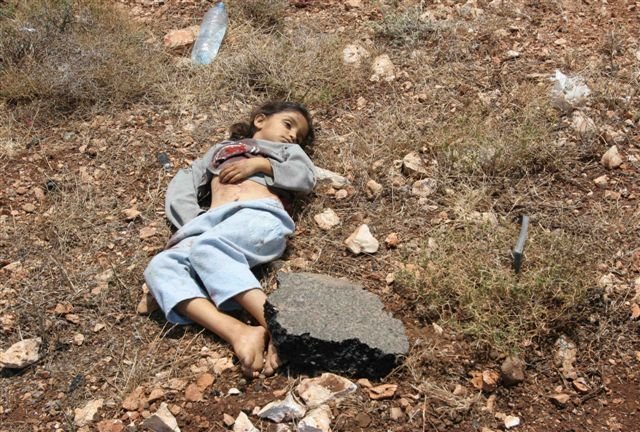
I saw the carnage . . .
saw girls' dreaming heads
blown to red atoms,
and their dreams with them . . .
. . .
saw babies liquefied
in burning beds
as, horrified,
I heard their murderers’ phlegm . . .
"American Christians and Jews have become raging hypocrites," Nakba told
me in an exclusive interview. "They want every possible right for themselves and
constantly preach the glories of democracy, equal rights and justice to the rest
of the world. But when push comes to shove, they steamroll over innocent women and
children if there's something they want: oil, land or water. Why are millions of Palestinians being denied basic human
rights, freedom and dignity? Because Americans want cheap oil and Israeli Jews want free
land and water, at the expense of Arabs. But what has happened? The price of oil
has skyrocketed, and Americans have spent more than a trillion dollars, perhaps
much more, on wars they will never win. Israel has stolen land and water from
the Palestinians for more than sixty years, but look at the toll on the Jews. They
both would have done much better to simply practice what they preach. Perhaps the worst
thing about all the mayhem on both sides is that it is so unnecessary, and
entirely counter-productive. Innocent women and children are dying because Americans
and Jews want "more equal" rights than Arabs. If they would only settle for
truly equal rights, they would save money and avoid what they hypocritically
call 'terrorism,' when by far the greater terrorism is the systematic terrorism
practiced on a daily basis by the governments of Israel and the United States
against millions of innocents."
. . .
I saw my mother stitch
my shroud’s black hem,
for in that moment
I was one of them . . .
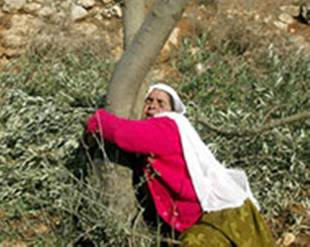
. . . I saw our Father’s eyes
grow hard and bleak
to see frail roses severed at the stem . . .
"But the Jews are full of irrational fears, terrified of a Holocaust that
is long over, while Americans are full of grandiose
imaginings that the United States is 'the greatest nation on earth' no matter
how evil its actions ... 'just because.' Of course the Nazis once claimed that
Germany was 'the greatest nation on earth' and had the right to impose its will
on other nations 'just because.' At some point the rest of the world must say,
'We've had enough!' and start to fight back. That's what the people Americans
call 'terrorists' are doing today. I don't agree with their tactics, when they
target civilians, but I understand their anger and resolve. If Americans want to
stop being targets, they should agree to pay to going price for oil (which will
save them trillions of dollars in the long run) and stop supporting the
injustices of Israel against Palestinians. If they did these simple things, they
would save money and lives on both sides. But so far Americans seem content to
rush headlong toward World War III, singing the praises of their glorious
nation, the way Germans rushed headlong toward World War II, singing
"Deutschland Über Alles."
. . .
How could I fail to speak?
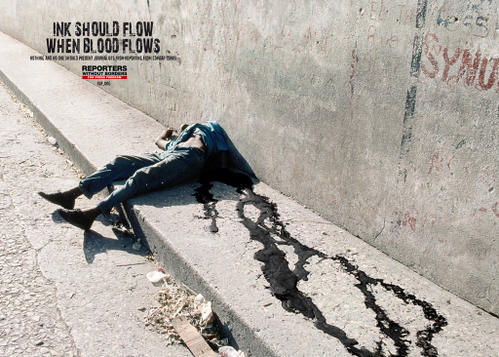
I thought of women slain for being born
the "wrong" race, sex, caste, or the "wrong" religion.
I thought of Joan of Arc, her tunic torn,
her breasts exposed, her bloody Inquisition.
"Why should innocent women and children suffer and die, because Americans and
Jews want to have their cake and eat it too? Why should they be allowed to
preach the glories of 'democracy' and 'equal rights' to the rest of the world,
while denying basic human rights and dignity to innocent women and
children?"
His eyes meet mine with blank incomprehension.
"How did you come, my friend, to harm this child?"
"She was not mine, and no report’s been filed . . .
"So what, old chum?" (Strange lines beyond my scansion.)
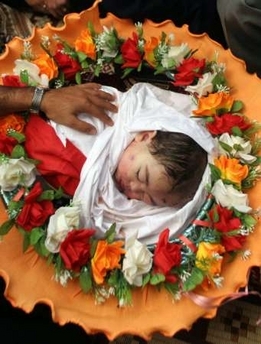
I felt the flames and then her screams explode.
I thought of Mary and her dolorous road.
"This is why I write . . . in the hope that madmen will come to their senses,
before it's too late. They call their enemies 'evil' without ever asking
themselves 'Is it possible that we did something wrong, to make other people so
incredibly angry with us?' Did the German people ever understand the wrath Americans
felt when they saw the Nazi concentration camps? Well, that's the same wrath we
feel today, when we see Palestinian women and children living in refugee camps,
and inside ghettos with walls twice as high as the Berlin Wall. Why do more and
more people all around the globe look at Americans as if the United States is
the second coming of the Third Reich? Perhaps, because it is."
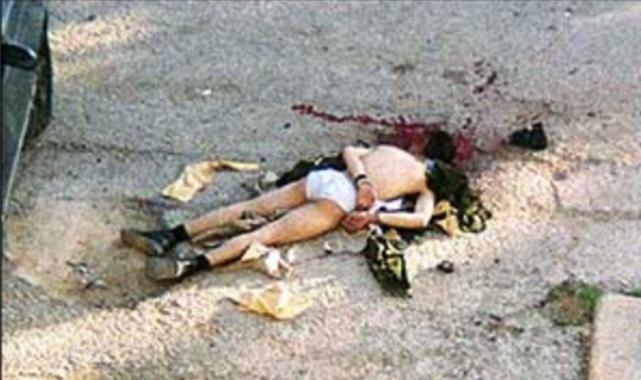
Sing hymns. Praise God. Erect some higher steeple.
Condemn my kind to poverty, and hell . . .
"Americans and Jews seem to think they get some sort of free pass, simply
because of who they are. They imagine themselves to be 'superior,' to be the
Chosen Few. But the course of recent history says otherwise. Americans and Jews
are alienating the rest of the world. There are billions of people who disagree
that Americans and Jews are entitled to 'special privileges' at the expense of
so many innocents. Yes, there are only around 10 million Palestinians. But they
have 1.5 billion Muslim brothers and sisters who do not take their suffering and
deaths lightly. Nor should they. But Americans and Jews only need to do one
thing, to change the inevitable course of world events. They need to stop
claiming special rights and privileges, and act in accordance with their stated
beliefs. Do they really believe that all men are created equal? Then treat
everyone else as equals. If not, why be hypocrites? At least the Nazis were
honest, that they really did think they were superior to everyone else. Is there
any lower life form than a man who abuses women and children, while praising his
own 'righteousness'? Aren't those ones Jesus reserved all his indignation for:
the self-righteous hypocrites?"
"Shock and awe?" Yes, I feel awe—and shock.
You jackals killed my doves, my lambs, my flock!
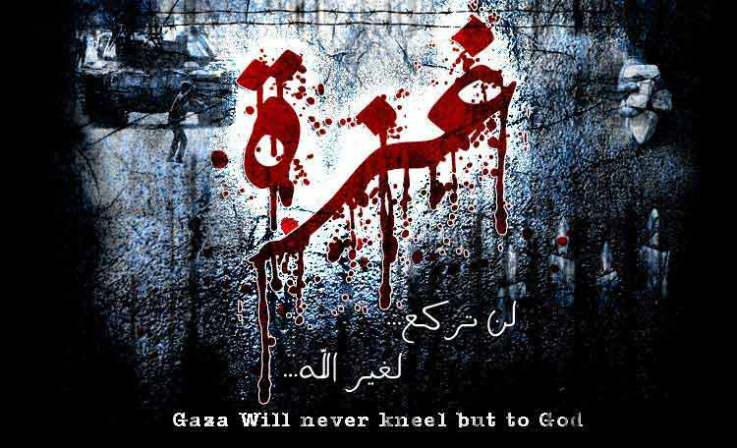
Apollyon I - Night of the Apocalypse
by Nakba
His eyes meet mine with blank incomprehension.
How did you come, my friend, to harm this child?
"She was not mine, and no report’s been filed.
So what, old chum?" (Strange lines beyond my scansion.)
A girl so sweet, if woebegone?
Why, surely she was everyone’s!
He lifts his eyes, shifts, sighs, spits, unbeguiled.
He does not know that I have come to judge him.
"What’s it to you?" he threatens, with a leer.
She was my child . . .
"That
thing defiled?"
Ten trillion wavering stars blink, disappear.
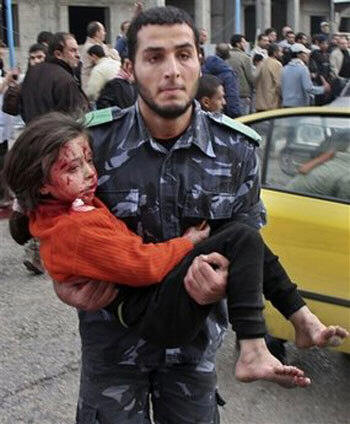
Suffer the Little Children
by Nakba
I saw the carnage . . .
saw girls' dreaming heads
blown to red atoms,
and their dreams with them . . .
. . .
saw babies liquefied
in burning beds
as, horrified,
I heard their murderers’ phlegm . . .
I saw my mother stitch
my shroud’s black hem,
for in that moment
I was one of them . . .
I saw our Father’s eyes
grow hard and bleak
to see frail roses severed at the stem . . .
How could I fail to speak?
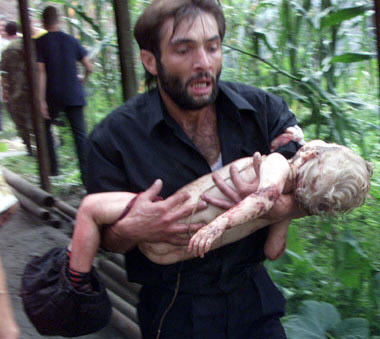
Lines for a Palestinian Mother and Child
by Nakba
I swear her eyes were gentle . . . that she was
a child herself, although she bore a child
close to her breast: her one and only cause.
I watched in apprehension as men filed
in close, goose-stepping ranks on either side,
as if they longed for blood, on Eastertide.
I thought of women slain for being born
the "wrong" race, sex, caste, or the "wrong" religion.
I thought of Joan of Arc, her tunic torn,
her breasts exposed, her bloody Inquisition.
I felt the flames and then her screams explode.
I thought of Mary and her dolorous road.
When will religion learn men must repent
of killing even one mild innocent—
whether
before or after Lent?
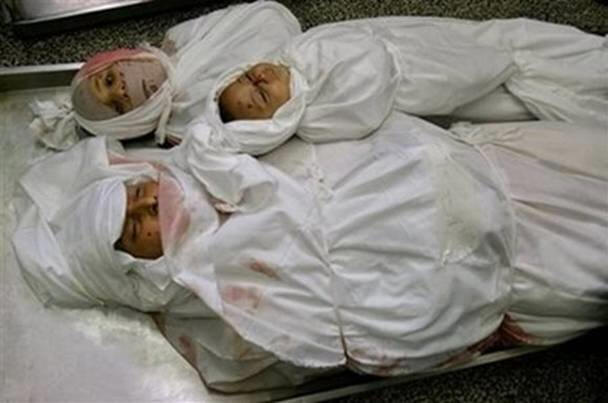
Lockheed, Take Heed
by Nakba
Terror fell upon my children. Wailing,
they ran toward my arms—small, pale with fright.
They seemed eternities from me . . . so distant!
Their day exploded. Now I live in night.
"Made in America." I find that tragic.
Though far less tragic than my sweet doves, blown
to atoms by your profits’ ill-bought magic.
Land of the "brave," the "free"? Brave freedom’s flown
to heights unknown—too high to see my people
crushed in the dust by those you love so well.
Sing hymns. Praise God. Erect some higher steeple.
Condemn my kind to poverty, and hell.
"Shock and awe?" Yes, I feel awe—and shock.
You jackals killed my doves, my lambs, my flock!
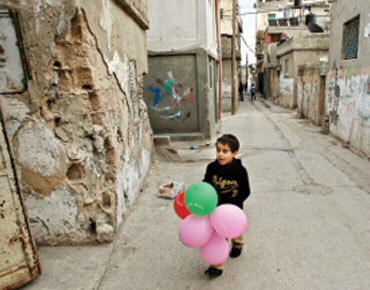
US Schoolboys
by Nakba
The simple path to peace
begins with a single step,
as the sun breaks bright to the East
though the schoolboy has long overslept.
O, when will he rise and yawn!
Will he miss how dew spangles the lawn?
The simple peace path begins
when the schoolboy repents of his sins,
for his balmy vacation’s long over.
There’s no time to be lolling in clover!
Now that the bright day has begun,
he must rise in accord with the sun.
The path is called Justice . . . and now
he must walk it, and stoutly avow
to follow wherever it leads
till the sun sets its blaze to the weeds . . .
He must thresh, so his brothers can find
peace’s path, though the world seems blind.
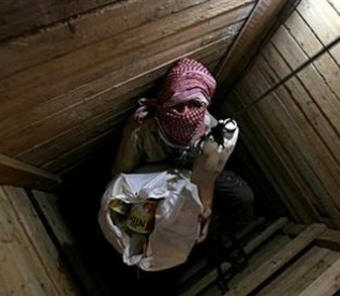
Her Slender Arm
by Nakba
Her slender arm, her slender arm,
I see it reaching out to me!—
wan, vulnerable, without a charm
or amulet to guard it. Flee!
I scream at her in wild distress.
She chides me with defiant eyes.
Where shall I go? They scream, "Confess!
Confess yourself, your children lice,
your husband mantis, all your kind
unfit to live!"
See, or be blind.
I cannot see beyond the gloom
that shrouds her in their terrible dungeon.
I only see the nightmare room,
the implements of torture.
Sudden
shocks contort her slender frame!
She screams, I scream, we scream in pain!
I sense the shadow-men, insane,
who gibber, drooling, Why are you
not just like US, the Chosen Few?
Suddenly, she stares through me
and suddenly I understand:
I hear the awful litany
of names I voted for. My hand
lies firmly on the implement
they plan to use, next, on her children
who huddle in the corner. Bent,
their bidden pawn, I heil Amen!
to their least wish. I hone the blade
"Made in America," their slave.
She has no words, but only tears.
I turn and retch. I vomit bile.
I hear the shadow men’s cruel jeers.
I sense, I feel their knowing smile.
I paid for this. I built this place.
The little that she had, they took
at my expense. Now they erase
her family from life’s tattered book.
I cannot meet her eyes again.
I stand one with the shadow men.
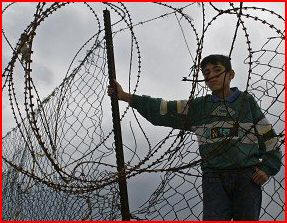
In her dread repose (I)
by Nakba
Find in her pallid, dread repose—
no hope, alas!, for the Rose.
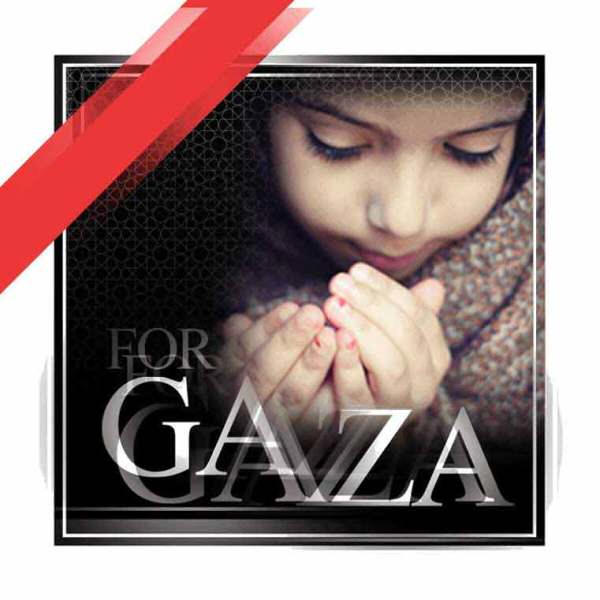
In her dread repose (II)
by Nakba
Find in her pallid, dread repose—
no hope for the World. O, my violated Rose!
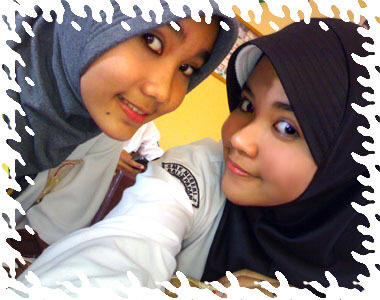
The Least of These
by Nakba
Here lies a child of the Holocaust.
And here all her dreams lie buried, unknown . . .
lie buried, unlived. And who knows the cost?
No roses grow here by this stone
stark as bone.
"Dearly Beloved," her white marker reads,
as many bright sermons on Love have begun,
but this is her end. She lies among weeds
more somber than widows’
six feet from the sun.
Whom shall we cherish? O, whom shall we love?
The war profiteer, or the peaceable dove?
"Made in America," this Cruise Line said:
now Palestine’s dove lies here—cold, shattered, dead.
Here lie her pieces. Friend, read them, and weep.
Stand firmly for justice, or lie in your sleep.
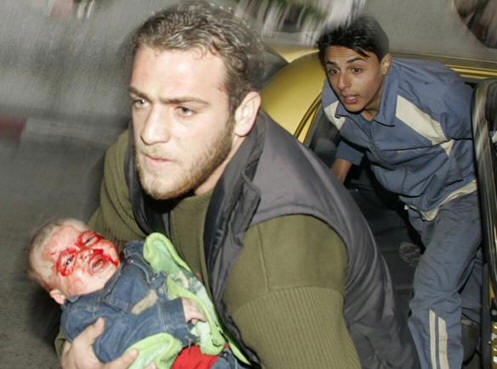
The Horror
by Nakba
the Horror is a child who died because
we closed our eyes to tribal Nature’s laws,
who knows no justice, but red fangs and claws
the Horror is the child we led to stray
into dark wilds where evil Men hold sway,
abandoned her, then swiftly walked away
now she lies dead, and many innocents!
the Tiger prowls; He longs to kill; He pants
for blood, as children die, unheard, like ants
the Tiger rules by Law, red Claw and Tooth,
while Barnums laugh, count Beans, and sip Vermouth.
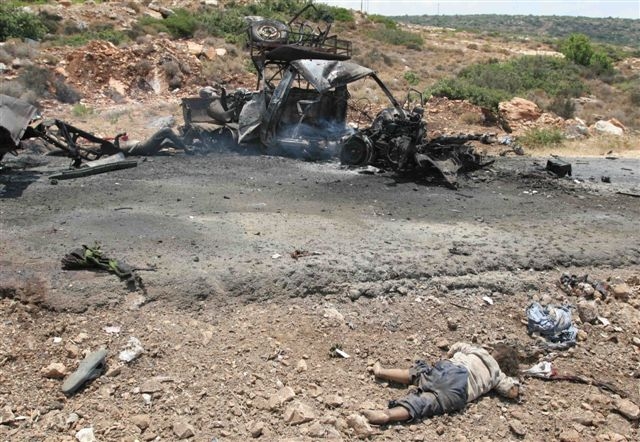
I Saw
by Nakba
I saw the carnage . . .
saw their dreaming heads
blown to red atoms,
and their dreams with them.
I saw their fathers’ eyes
grow hard and bleak,
as did my own.
I heard their murderers’ phlegm.
I saw them in my dreams;
my knees grew weak . . .
for in that moment I was one of them . . .
How could I fail to speak?
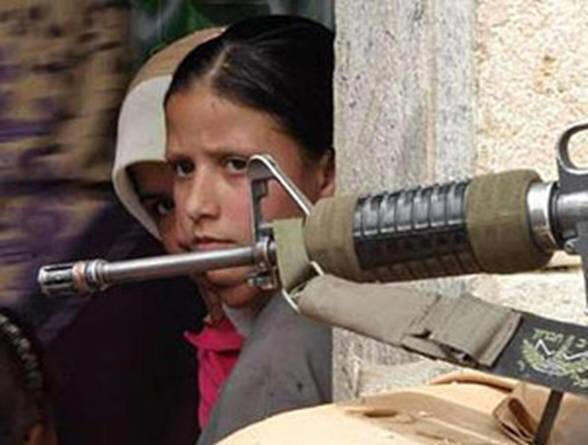
The BOSS
by Nakba
In 1948,
crying "Holocaust!"
the Jews became the keepers
and mad sweepers of the lost
doomed
Palestinian nation,
while every American "Christian"
wept with great elation
to see Yahweh’s "salvation."
He’s the BOSS!
Though He couldn’t take on Hitler,
though Himmler had Him harried,
though Goering had Him groping
for answers—yes, and worried—
though Mengele had mangled
the fairest and the brightest
of all His chosen tribes
and those with whom He’s tightest . . .
He’s the BOSS!
Forget all human justice.
Forget about two wrongs.
Just ply the LORD with money,
pleas, prayers and fervent songs.
Then let the children suffer
and let the strong run wild.
You’re in with heaven’s Duffer!
Your prayers have Him beguiled!
So ... You’re the BOSS!
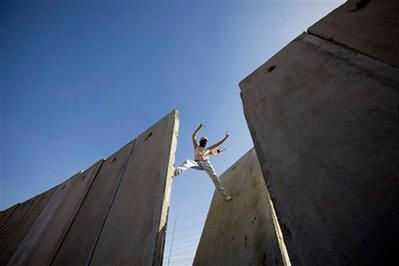
Stampede
by Nakba
I dreamt last night I was a Palestinian
herded like a cow or a defeated Indian
down some new Trail of Tears, into Gaza’s corral.
And I dreamt that you watched me
from the highest Wall.
I dreamt the whip cracked; how it bit my flesh!
I was gaunter than the skeletons of Bangladesh.
But I stood straight, upright. I refused to fall.
And I dreamt that you watched me
from the highest Wall.
I screamed aloud, but I refused to break
though my geysering blood created red lakes.
My oppressors laughed, Nazis!, but I stood tall.
And I dreamt that you watched me
from the highest Wall.
O, when will you see me, and meet my eye?
O, when will you hear me, and regard my cry?
You put me here. You helped build this cursed Wall
with your nickels and your dimes and your pious calls
for "democracy" and "freedom." How your voice appalls!
Now we mill here like cattle, in our abattoir stalls.
It was you who interred us. Please, before it’s too late,
break down the fucking wall, fling open hell’s gate!
Amen
DISCLOSURE: The Palestinian poet Nakba is an alias of the American poet Michael
R. Burch, who also writes as "The Children of Gaza" in order to give voiceless
children a voice.
Michael R. Burch Main Translation Page & Index:
The Best Poetry Translations of Michael R. Burch
The Best Poetry Translations of Michael R. Burch (sans links)
Translation Pages by Language:
Modern English Translations of Anglo-Saxon Poems by Michael R. Burch
Modern English Translations of Middle English and Medieval Poems
English Translations of Arabic/Palestinian Poets by Michael R. Burch
English Translations of Chinese Poets by Michael R. Burch
English Translations of Female Chinese Poets by Michael R. Burch
English Translations of French Poets by Michael R. Burch
Germane Germans: English Translations by Michael R. Burch
English Translations of German Poets by Michael R. Burch
English Translations of Japanese Poets by Michael R. Burch
English Translations of Japanese Zen Death Poems
English Translations of Ancient Mayan Love Poems
English Translations of Native American Poems, Proverbs and Blessings
English Translations of Roman, Latin and Italian Poets by Michael R. Burch
English Translations of Tamil Poets
English Translations of Urdu Poets by Michael R. Burch
English Translations of Uyghur Poets by Michael R. Burch
Translation Pages by Poet:
Catullus Translations by Michael R. Burch
Ovid Translations by Michael R. Burch
Leonardo da Vinci Translations by Michael R. Burch
Pablo Neruda Translations by Michael R. Burch
The HyperTexts
















